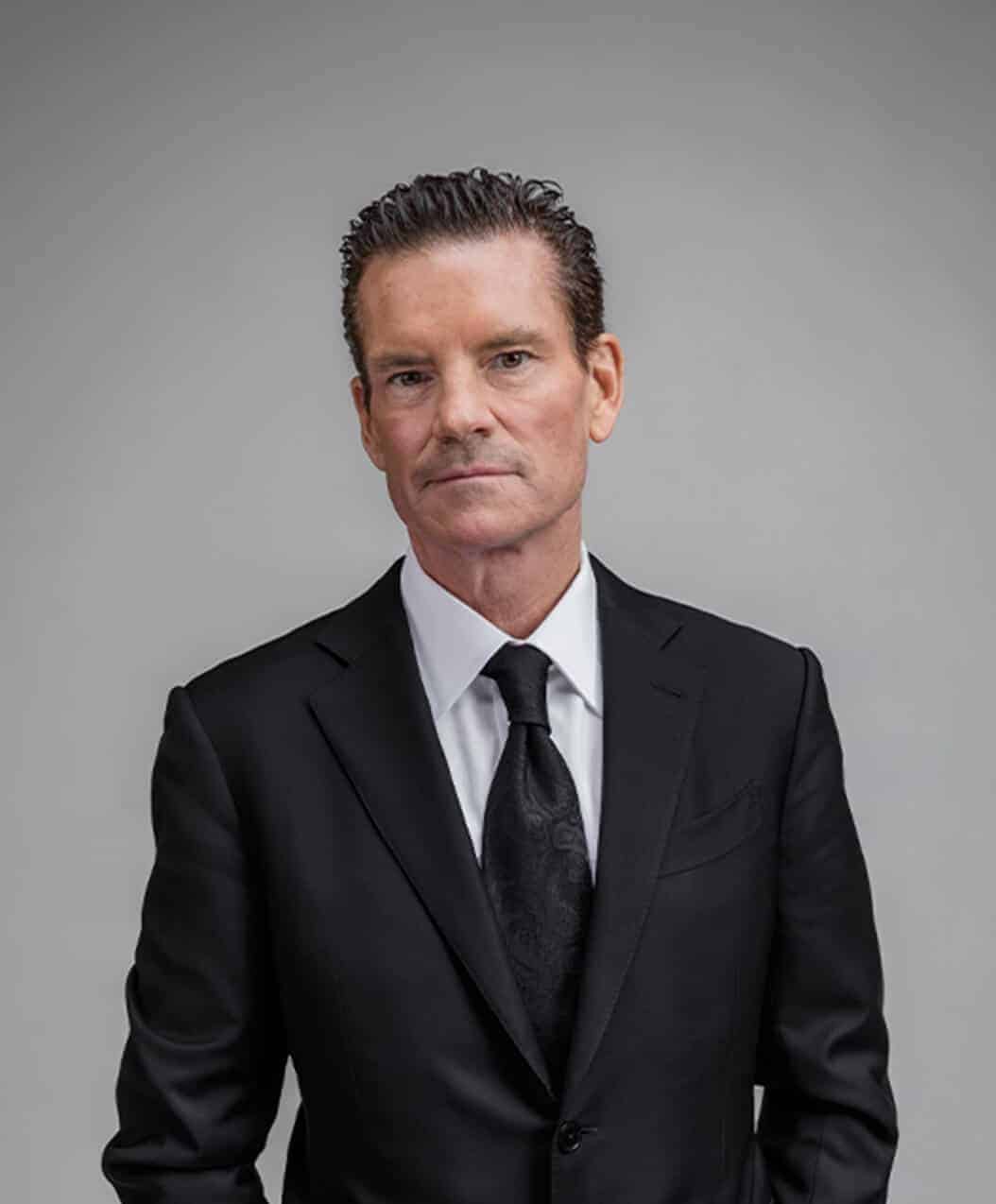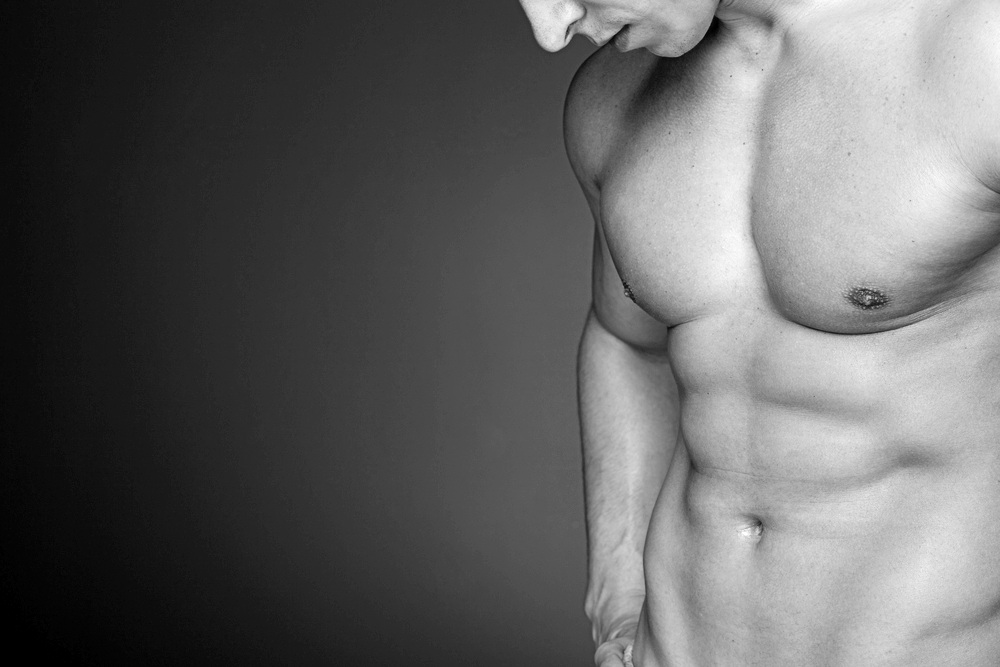September 8th, 2024
Dr. Mulholland, Md
When it comes to facial symmetry, few things have so pronounced an effect as the nose. And if you have a wide nose, this can have not only a significant effect on the way you feel about your appearance — you may be unhappy with your face’s overall look and symmetry, which can lead to feelings of self-consciousness, insecurity, and a lack of self-confidence. Fortunately, a rhinoplasty — otherwise known as a nose job — is an effective way to correct a wide nose and improve your look and the way you feel about yourself.
Issues With Wide Noses
A wide nose can significantly affect the look of your face since wider noses tend to be flatter and do not project from the face’s profile. Because of this, a wide nose can affect overall facial symmetry by making your other facial features — such as your eyes or mouth — appear too small in contrast.
If the nasal passages of the nose are flat, this may also result in breathing difficulty due to constricted airflow. Individuals who experience constricted breathing due to a flat nose may also be at risk of sleep apnea, which can, in turn, heighten the risk of suffering a stroke or heart disease.
What Is Rhinoplasty?
Rhinoplasty, also known as a nose job, is a reconstructive type of facial plastic surgery that addresses the nose’s cosmetic (and sometimes medical) issues. A nose job aims to improve the nose’s aesthetic, balance, and functionality and restore or create optimal nasal-facial proportion. A nose job can be performed to open airway flow, repair imperfections that are genetic or caused by an injury, and improve the overall symmetry of the face.
Some common issues that can be addressed or corrected by a nose job include a bulbous tip, dorsal hump, crooked nose, bridge scoop, and overly broad nasal bones. Rhinoplasty can also be used to unobstruct nasal passages that may be partially blocked due to the shape of the nose, or due to factors such as a past injury or deviated septum.
Can Rhinoplasty Fix a Wide Nose?
Yes, rhinoplasty can fix a wide nose. During a nose job surgery, your plastic surgeon can reduce the size of excessively wide nasal bones that make your nose look disproportionately wide, affecting the overall look and symmetry of your face.
The Types of Nose Jobs Used for a Wide Nose
Rhinoplasty is an intricate procedure since the nose is a very delicate part of the face. There are several different approaches that your plastic surgeon may take to reconstruct and repair your nose if it is disproportionately wide.
Wide Nose Rhinoplasty
A wide nose rhinoplasty, also known as an osteotomy, involves breaking the upper nasal bones to narrow the nose bridge. During this procedure, your surgeon will change the bone structure at the top of your nose to reduce the width of your nose overall. After your surgeon breaks your upper nasal bridge bones, the bones will be broken into smaller pieces that will be rearranged to change the overall width of your nose.
There are three ways to perform a wide nose rhinoplasty: open wide nose rhinoplasty, closed wide nose rhinoplasty, and bulbous nose rhinoplasty. The type of surgery that is ideal for you will depend on whether your nose is too wide at the bridge or at the tip, and on the extent of restructuring required.
Open Wide Nose Rhinoplasty
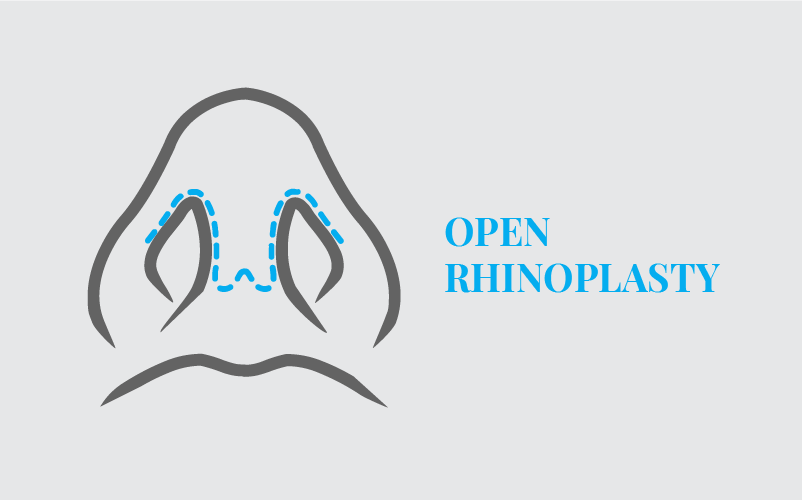
During an open wide nose rhinoplasty, your surgeon will make incisions between your nostrils, under your nasal tip. This type of wide nose rhinoplasty is ideal for those who have a nose that needs major restructuring, as it offers your surgeon better access to your nasal bones.
Closed Wide Nose Rhinoplasty
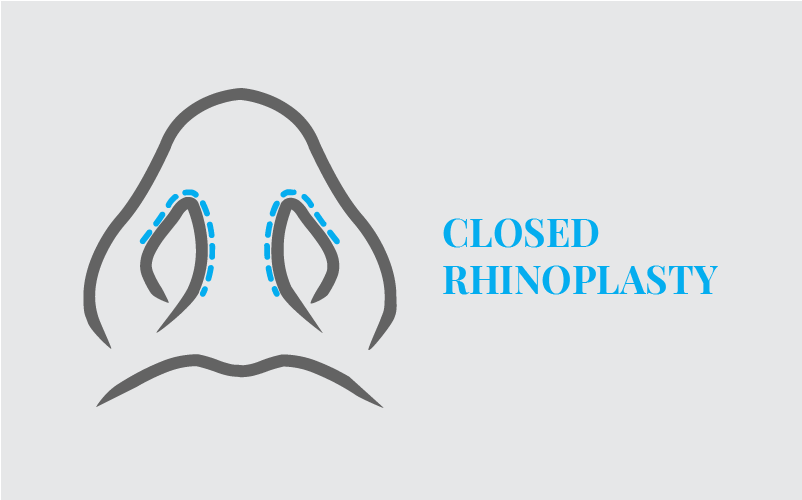
During a closed wide nose rhinoplasty, your surgeon will make incisions inside the nostrils. Because this approach limits the extent to which your surgeon can alter the appearance of your nose, it may be ideal for those with wide noses that need minor restructuring.
Bulbous Nose Rhinoplasty
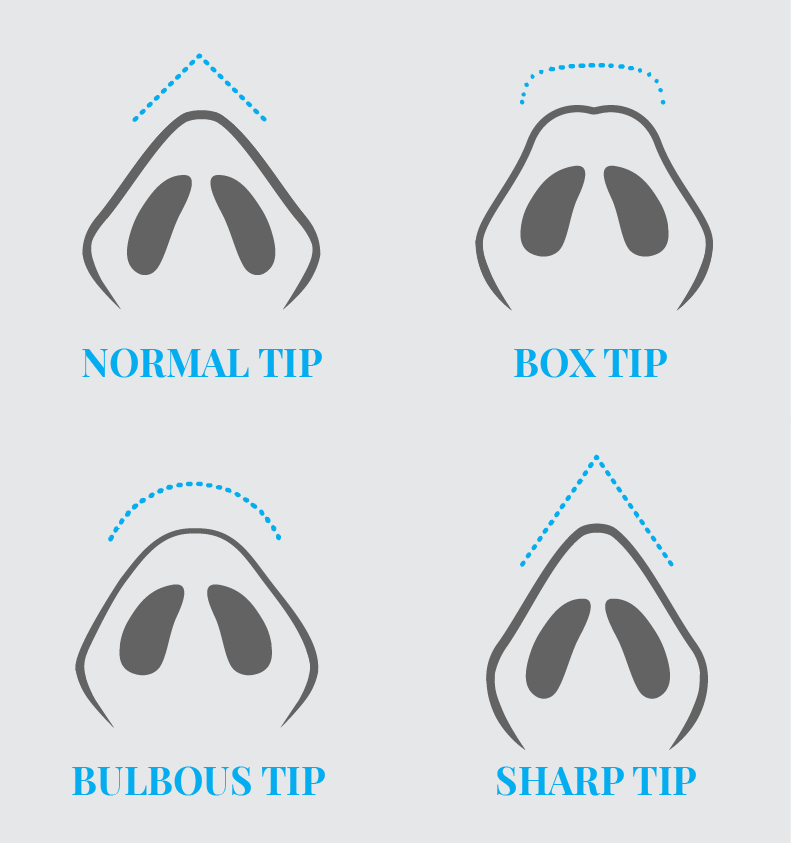
Different types of nasal tips.
A bulbous nose rhinoplasty is ideal for patients with an excessively wide nose at the tip rather than at the bridge. A bulbous nasal tip can be caused by excessive cartilage, too much space between cartilages, poor cartilage definition, or thick skin at the nasal tip.
During a bulbous nose rhinoplasty, which is also known as a tiplasty, your cosmetic surgeon will either make an incision between your nostrils or on the inside of your nostrils (in other words, your bulbous nose rhinoplasty will either be open or closed). Depending on the shape of your bulbous tip, your surgeon will then either tie widespread cartilage together, resulting in a narrower, sharper tip; implant new cartilage on the nose tip, which will cause the nose to extend, in addition to giving it a sharper appearance; or reposition your existing septum cartilage.
Your surgeon may also perform what is known as an alar reduction, which involves either reducing or tying together the fleshy parts of the skin on your nostrils that connect your nose to your face.
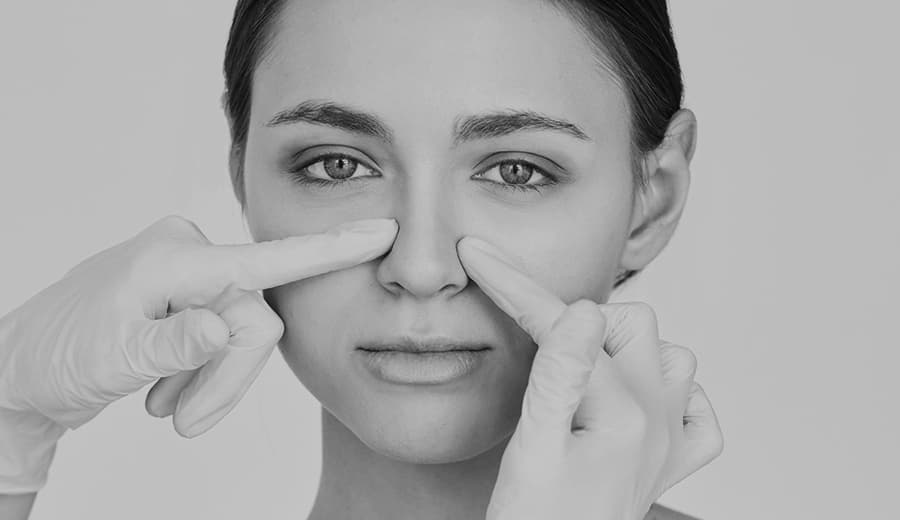
Recovering After Wide Nose Rhinoplasty
Because your nose is an incredibly delicate part of your face, you will need to take some time to recover following your wide nose rhinoplasty. You will experience some discomfort around the surgical site, which can be managed with prescription pain medication. Under-eye bruising and the use of a splint — which you will need to use for the first week after your surgery — might make it uncomfortable for you to be at work; because of this, and because rest is integral to your recovery, it is recommended that you take some time off following your wide nose rhinoplasty.
In addition, to promote quick and complication-free healing, it is recommended that you avoid strenuous activity for two to three weeks after your surgery, and avoid the use of glasses for four to five weeks, to avoid altering the outcome of your surgery. You should also try to reduce anything that will cause nasal path irritation, as coughing and sneezing could compromise your results, and be sure to eat well-balanced meals and stay hydrated. You can find a full run-down of recommendations for how to ensure optimal recovery after your rhinoplasty here.
Does Rhinoplasty Surgery Leave Scars?
Rhinoplasty may result in minimal scarring, however, because of the placement of the small incisions — usually on the inside of the nostrils, or between the nostrils — any scarring will likely not be visible. However, if you do experience scarring after your rhinoplasty, some steps can be taken to minimize the scar, like avoiding strenuous exercising and avoiding smoking and drinking alcohol. In addition, any visible scar tissue that forms after rhinoplasty can be treated with targeted steroid injections or with a revision rhinoplasty.
Other Options to Consider
If you are unsure about having a rhinoplasty, there are some non-surgical options to consider that may help improve the overall appearance of your nose.
Non-surgical Rhinoplasty
The “five-minute nose job” involves injecting gel fillers such as Revanesse, Restylane, Perlane, and or Juvederm into the nose to improve its overall shape. This type of procedure may be ideal if your surgeon has determined that the shape of your wide nose can be improved through fillers without the need for invasive surgery.
Using Makeup
Altering your nose appearance using makeup is another way to compensate for a wide nose if you are not able or not ready to opt for a rhinoplasty. Many online tutorials will teach you how to use contouring to create the visual impression of a narrower nose.
Choosing TPS for Your Rhinoplasty Procedure
If you have decided that a wide nose rhinoplasty is ideal for you, the plastic surgeons at TPS are excellent choices for your procedure. Toronto Plastic Surgeons is board-certified and has performed thousands of reconstructive facial plastic surgeries, including rhinoplasties of all types. Notably, Toronto Plastic Surgeons trained in cosmetic blepharoplasty, Asian blepharoplasty, and facial surgery with famed Hawaiian plastic Surgeon Dr. Bob Flowers. He will consult with you to determine what type of nose job is ideal for your aesthetic concerns to achieve the most optimal outcome.
Contact the clinic to begin the consultation process today!
